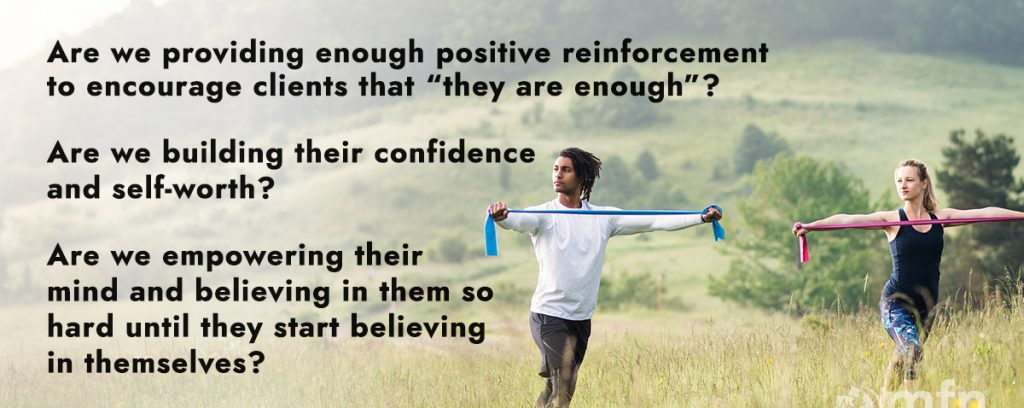“Tell Me What You Don’t Like About Yourself”
A potential client nervously sits down before a very handsome LA plastic surgeon at the beginning of each episode of this extremely popular television show in the early 2000s. The surgeon asks the same question to each patient he meets.,“Tell me what you don’t like about yourself?” The potential client, slightly taken back by the magnitude and depth of this question, details what it is he or she wishes the doctor to change about them.
As a MedFit fitness professional and educator, this particular scenario really resonated with me. In fact, I have spent multiple decades trying to figure out the “WHY” behind the behaviors and mindsets adopted by my clients. What external or internal factors are positively or negatively affecting their ability to make healthy decisions, their ability to feel confident, or their ability to love themselves or others. This is exactly why we all must keep asking, why?
While designing fitness programs to support physical well-being is extremely important, are we providing enough positive reinforcement to encourage clients that “they are enough”? Are we building their confidence and self-worth? Are we empowering their mind and believing in them so hard until they start believing in themselves?
These are the questions we should be asking ourselves when we design fitness programs for the “whole person.”

The Why
Why do people feel the need to drastically change their appearance?
Where do these ideas come from and how will it have a positive effect on their future?
Why is outer appearance still considered more important than overall health when considering recent research to support longevity?
These are just a few questions to consider as a fitness or medical fitness professional as you begin to assess clients and “peel back the onion” to fully understand how you can best support their goals.
The How
If your client suffers from what I refer to as “negative self-talk,” those incessant self-deprecating statements act as a personal bully and obstacle to achieve true happiness — ask them why they feel this way?
Then, continue those “Why” questions until you find out the answers. This may take one whole session, or it may take months of shorter conversations. However, a medical fitness professional has the power to change lives, not only through physical fitness, but mental fitness. Mindset matters!
Consider
1. Is this negative thinking a result of a negative experience or is it being projected on them by others?
2. Ask questions and listen. Only when the fitness professional has developed a trusting, supportive, comfortable, and communicative relationship with their client can the fitness professional begin to understand their “why.”
3. “The way you make your muscles grow is through resistance training, where you work them until your muscle fibers are fatigued and break apart. With proper rest, recovery, and nutrition, those same muscle fibers grow back stronger than they were before. And you grow. The mind and your mindset work the same way.” –Dr. Bryan Price
Christine M. Conti, M.Ed, BA is and international fitness educator and presenter. She currently sits on the MedFit Education Advisory Board and has been nominated to be the 2020 MedFit Network Professional of the Year. She is currently writing the MedFit Network Arthritis Fitness Specialist Course and is the CEO and founder of ContiFit.com and Let’s FACE It Together™ Facial Fitness & Rehabilitation. Christine is also the co-host of Two Fit Crazies & A Microphone Podcast and the co-owner of TFC Podcast Production Co.

